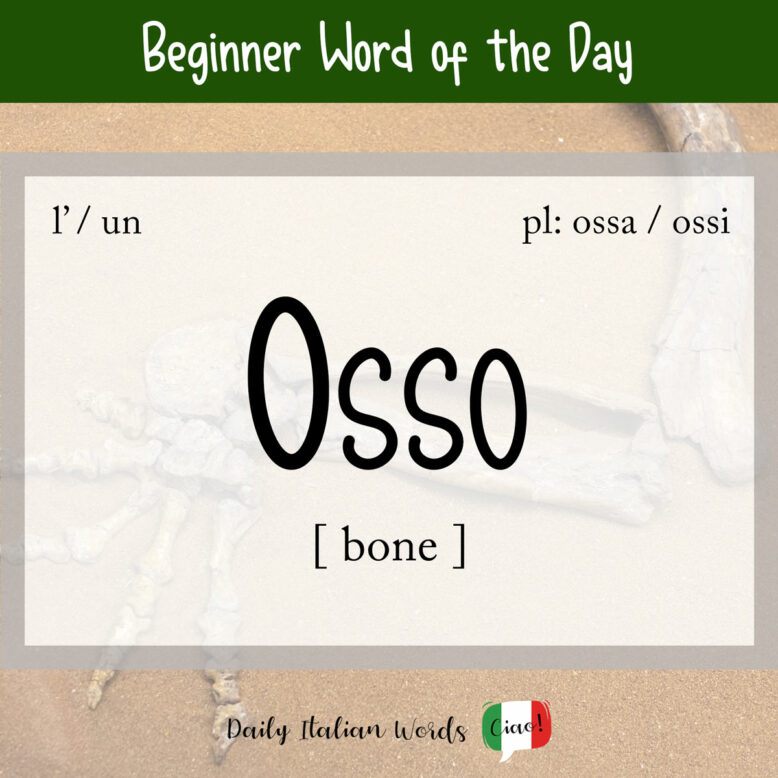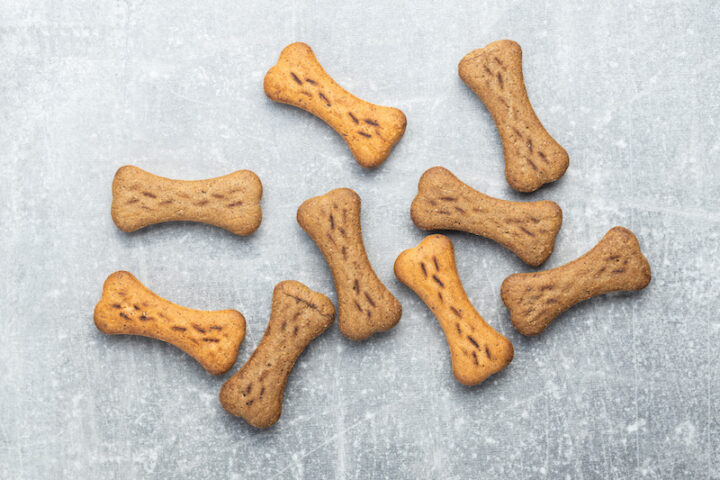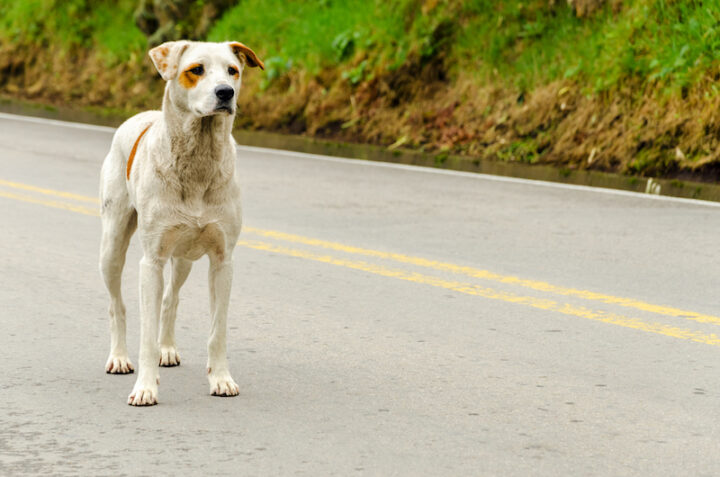The Italian word for bone is osso (masculine). It derives from the Latin os.

Like many parts of the body, this word has two plural forms: ossa (feminine) and ossi (masculine). The masculine plural, formed from the singular osso, refers to individual bones considered separately, or to the bones of an animal. The feminine plural comes from the Latin neutral plural ossa, and is used to denote human bones in a collective sense. Comparing the two example sentences below should give you an idea of how they differ!
Ci sono 206 ossa nel corpo umano.
There are 206 bones in the human body.
Mia mamma ha dato gli ossi al cane.
My mom fed the dog bones.

Below are a few of the most well-known bones of the human skeleton (scheletro umano):
- cranio = skull
- mandibola = lower jaw
- colonna vertebrale = spinal column
- clavicola = collarbone
- costole = ribs
- sterno = breastbone
- femore = thigh-bone
- tibia = shinbone
When describing something related to bones, the adjective osseo is often used instead of osso. For example, bone marrow translates as midollo osseo whereas bone tissue is tessuto osseo.
The word osso is frequently used in a figurative sense to talk about the toughness (or weakness) of a person’s character or physical state. If you have le ossa dure (hard bones), for example, you are considered tough whereas avere le ossa rotte (to have broken bones) is another way of saying to be worn out.
One of my favourite Italian expressions is un osso duro (a hard bone), which is how you’d say a tough customer or a hard nut to crack.
Angelo è un osso duro. Non molla mai.
Angelo is a hard nut to crack. He never gives up.
If a person or animal is so skinny that you can see their skeleton, you might say they are tutt’ossa (lit: all bones) or pelle e ossa (skin and bone). Likewise ridursi a pelle e ossa (lit: to reduce oneself to skin and bones) is a common metaphorical expression that means to lose weight.

Posa l’osso! (Put down the bone!) is an exclamation, almost always said in a jocular sense, used to tell someone not to touch something or to put an object back in its place. The allusion comes from the image of a dog defending its bone.
Another exclamation is Sputa l’osso! (Spit out the bone!), which is said to coax someone to speak their mind, especially if they are reluctant to do so. In this case, the image is that of a person with a bone splinter stuck in their throat. A variation with the same meaning is Fuori l’osso!
Dai Marco, non essere timido, sputa l’osso!
Come on Marco, don’t be shy, tell us!
Other expressions featuring ‘osso’
Farsi le ossa
Literal translation: to make bones for oneself
English meaning: to acquire experience
In carne e ossa
Literal translation: in flesh and bones
English meaning: in the flesh, in person
Essere bagnato fino all’osso
Literal translation: to be wet to the bone
English meaning: to be soaked to the bone
Rimetterci l’osso del collo
Literal translation: to lose one’s neck bone
English meaning: to be financially ruined
Rompersi l’osso del collo
Literal translation: to break one’s neck bone
English meaning: to die violently
Rompere le ossa a qualcuno
Literal translation: to break someone’s bones
English meaning: to give someone a thrashing
Heather Broster is a graduate with honours in linguistics from the University of Western Ontario. She is an aspiring polyglot, proficient in English and Italian, as well as Japanese, Welsh, and French to varying degrees of fluency. Originally from Toronto, Heather has resided in various countries, notably Italy for a period of six years. Her primary focus lies in the fields of language acquisition, education, and bilingual instruction.


